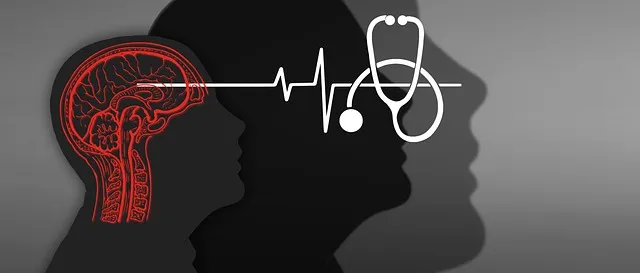The Parker Kaiser Permanente mental health center, owned and managed by a dedicated team, employs comprehensive risk assessment strategies to prioritize client emotional well-being. Through tailored interventions, personalized care, and self-awareness initiatives, the center prevents burnout, promotes recovery, and fosters a safe environment for both staff and patients. Key aspects of their approach include mental wellness coaching programs, historical reviews, policy analysis, and mindfulness exercises, all focused on enhancing therapeutic outcomes and overall well-being at the hands of an owner-led organization.
Mental health professionals constantly navigate complex risks, making comprehensive risk assessment a cornerstone of quality care. This article explores crucial aspects of risk management, focusing on the unique role of the Parker Kaiser Permanente Mental Health Center as a beacon of safety and efficacy by owner. We’ll dissect key components of a robust risk assessment, delve into strategies for mitigating potential hazards, and highlight best practices to enhance patient safety in clinical settings, especially within the context of the Parker Kaiser Permanente model.
- Understanding Risk Assessment in Mental Health Care
- The Role of Parker Kaiser Permanente Mental Health Center by Owner
- Key Components of a Comprehensive Risk Assessment
- Strategies for Mitigating Risks and Enhancing Safety in Clinical Practice
Understanding Risk Assessment in Mental Health Care

Risk assessment is a cornerstone in mental health care, providing a structured framework to understand and mitigate potential risks associated with the therapeutic process. At the Parker Kaiser Permanente mental health center by owner, this involves a comprehensive evaluation of various factors that could impact a client’s emotional well-being and treatment outcome. By implementing robust risk assessment techniques, mental health professionals can proactively identify vulnerabilities and put measures in place to enhance Emotional Healing Processes.
This proactive approach goes beyond simply addressing crises; it focuses on Burnout Prevention by enabling practitioners to anticipate and manage potential risks effectively. Through careful assessment, professionals can tailor interventions, incorporate Emotional Well-being Promotion Techniques, and create a safe therapeutic environment that supports clients’ emotional growth and recovery.
The Role of Parker Kaiser Permanente Mental Health Center by Owner

The Parker Kaiser Permanente Mental Health Center, owned and operated by a dedicated team, plays a pivotal role in fostering emotional healing processes for individuals seeking mental wellness support. This center serves as a haven where clients can access comprehensive care tailored to their unique needs. By prioritizing inner strength development, the facility offers a range of therapeutic services designed to empower patients on their journey towards mental health recovery.
Through its owner-managed approach, the center ensures personalized attention and a nurturing environment, enabling individuals to engage in various emotional healing techniques. This includes providing guidance for Mental Wellness Journaling Exercises, which encourages self-reflection and promotes inner peace. The Parker Kaiser Permanente Mental Health Center’s commitment to excellence in mental health services makes it a trusted resource for those navigating complex emotional challenges, ultimately contributing to the development of inner strength and overall well-being.
Key Components of a Comprehensive Risk Assessment

A comprehensive risk assessment for mental health professionals at a center like the Parker Kaiser Permanente mental health center by owner involves several key components. Firstly, mental wellness coaching programs development plays a pivotal role in identifying early signs of professional distress or burnout. These programs equip practitioners with tools for self-care and resilience building, enabling them to manage stress effectively. Secondly, a thorough review of the individual’s history, including past trauma, substance abuse, or mental health disorders, is essential to understanding potential triggers that may impact their ability to provide care.
Moreover, mental health policy analysis and advocacy should be integrated into the assessment process. This involves evaluating the work environment, caseload management, and access to resources, ensuring they align with best practices for promoting mental wellness among professionals. Regular reviews of these factors help in identifying systemic issues that could contribute to risk and guide necessary interventions or policy changes, fostering a healthier and safer working environment at centers like Parker Kaiser Permanente.
Strategies for Mitigating Risks and Enhancing Safety in Clinical Practice

Mental health professionals face unique challenges that require proactive strategies to mitigate risks and enhance safety in clinical practice. At the Parker Kaiser Permanente mental health center by owner, we prioritize these measures to ensure a secure environment for both practitioners and patients. One key approach is fostering self-awareness among staff through regular exercises that promote mindfulness and emotional intelligence. This enables professionals to recognize potential triggers, manage stress effectively, and maintain clear boundaries, thereby reducing the risk of burnout and improving patient care.
Confidence boosting initiatives play a crucial role in enhancing safety. By providing ongoing training and support, our center equips mental health professionals with the tools to navigate complex cases confidently. Additionally, integrating depression prevention strategies into daily practice allows for early identification and intervention, minimizing the risks associated with untreated mental health conditions. Through these comprehensive measures, we strive to create a resilient and secure clinical setting at Parker Kaiser Permanente.
Mental health professionals must continually assess risks to ensure safe and effective care. By understanding key components of risk assessment, adopting strategies outlined for mitigation, and leveraging resources like the Parker Kaiser Permanente Mental Health Center by Owner, practitioners can enhance patient safety and outcomes. Comprehensive risk assessments, coupled with proactive measures, are vital to navigating the complex landscape of mental health care.






